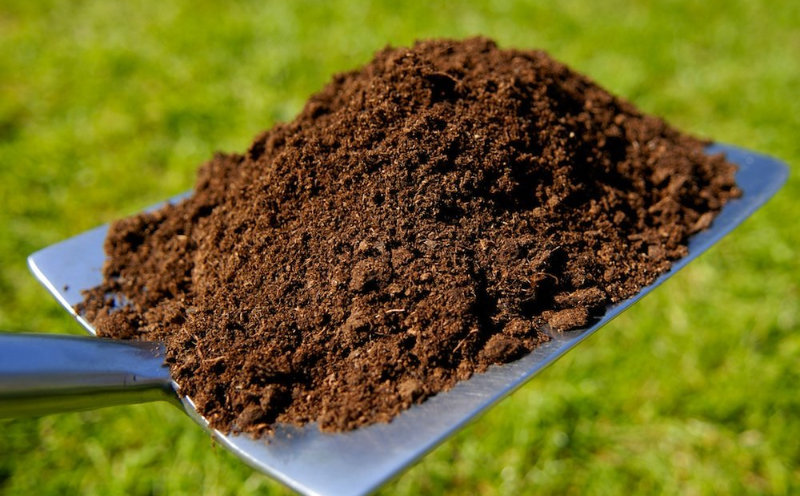Composting Items List For Enhancing Soils In The Garden

Listed are some of the items used for composting which I recall being used by my parents in order to enhance the soils in their garden.
It amazes me that the ‘old fashion’ way of enhancing ones garden is slowly being lost. How will you keep your garden soil healthy, if and when you no longer have modern fertilizers available to replace the nutrients consumed from the soil?
(Guest article by ‘Antique Collector’)
COMPOSTING
VEGETABLE MATTER
All vegetable matter that comes from preparation of a meal. For example, fruit and vegetables cleaned up for storing in the refrigerator — the unusable parts go into a garden pail with a lid, kept at your prepping area.
Cooked vegetables or fruit that were not consumed, along with spoiled produce, goes into the bucket for recycling for compost. It can include canned products you have purchased from the grocery store, or put up yourself, but were leftovers and not consumed.
You will need a container that has a tight fitting lid, to contain the smell. This will also control any fruit flies from developing. If your location is prone to aggressive bees, the lid will be your life savor.
NO MEAT
Neither the two legged or 4 legged variety goes into the composting pile.
Your only exception will be fish (fresh water fish), that includes all the parts you do not consume. If you go fishing, and bring your catch home to clean — the head, skin, tail & guts go into your fish bucket.
If you bring home fish from the ocean, I would recommend a different area for composting this material. As I do not recall how my parents handled the composting of those contents.
You can purchase fish emulsion, but prepare to spend a tidy sum for this product. If can be located at the garden shops and big box stores. It will be a limited fix for your gardens heath, when you have no access to the healthy version. Make sure you stock up for the long term. You should have latex gloves when working with this material, if it gets on your hands it will have to wear off(smell).
WORMS
If you go fishing and come home with a container with earth worms still inside, dump the soil along with the worms in your compost pile. They consume the food matter that you deposit into your compost pile. Remember to keep your worms happy & well fed. It’s less expensive for you to start your own earth worm casting material than purchasing from a vendor.
If your compost pile is not generating enough heat to keep the worms from getting cold — You can place layers of newspaper over the pile in order to trap the heat, along with moisture inside during winter months. In some areas you may require more paper layers to keep your worms happy during your minus-degree cold.
Come spring time you can penetrate the news paper material with holes, sprinkle water on it, and start your next layer of green material the top. The other process is to pull the paper off, and lay it where you will start your future pile to be composted.
COFFEE GROUNDS
*PLAIN* not the flavored grounds. Spread that over your compost material for saturation. Sprinkle the dry grounds on your lawns in order to feed the soil, and any earthworms living there.
Worms love coffee grounds, so plan a monthly feeding during the warm months if you have lawns, lightly sprinkle.
COMPOST PILE
If you do not have one where you are residing at this time, then dig hole(s) in your planter boxes or ground. Place the green material into those holes, cover with soil to winter over till next garden season. Then use a small roto tiller to work it in come spring time.
Egg Shells
Save them from your breakfasts, baking, and crush them — then place in the container for composting. Shells replace the calcium your soil loses during the up take of nutrients. Need a quick calcium fix? Put the egg shells in a pan of water, and heat up to remove the calcium from the shells. That water then can be given to your plants which are lacking.
Banana Peels
You can toss them in whole or chopped up, to be broken down in the compost pile. You can use these not only in your garden, but for feeding your rose bushes, fruit trees, and shade trees. The vitamin content in the skins is great for keeping plants healthy. The banana peels also keep certain insects from attacking those plants. (spider mites).
Milk Products
Old milk that has gone bad, cottage cheese, or yogurt can be used in your ‘compost pile’.
Bread
Old bread — reduce it into crumbs. It will take less time to break down to feed your soil and of course your worms.
Any other suggestions on composting and general garden care for all of the beginners and long time gardeners?
[ Read: Diatomaceous Earth For Long Term Storage Of Wheat & Grain ]
[ Read: What Is Borax Good For? ]
